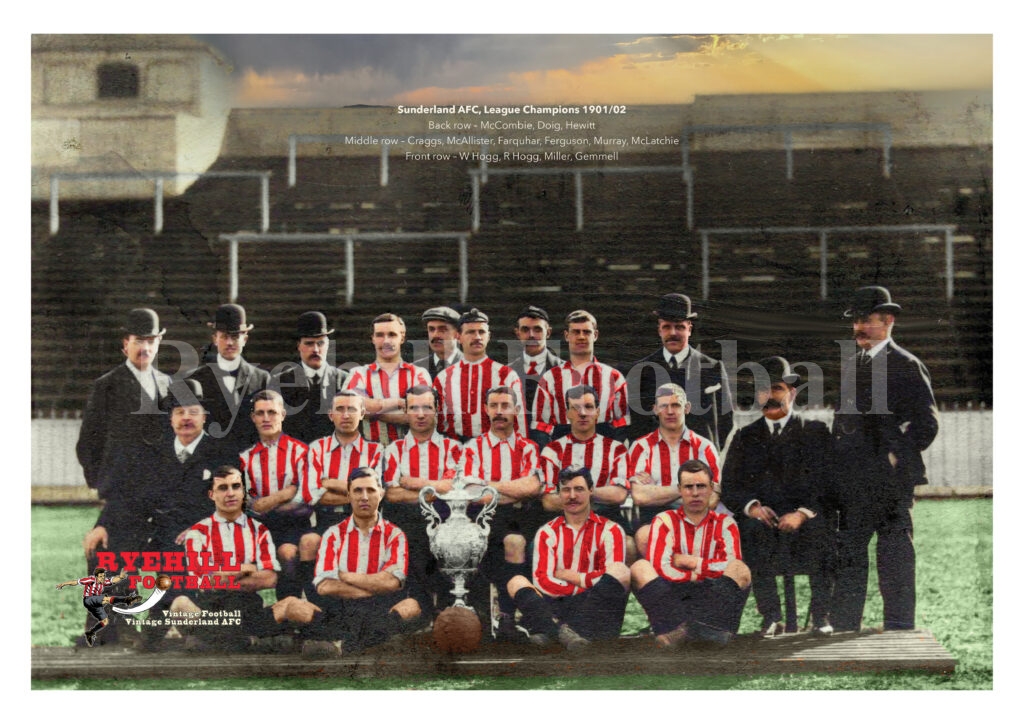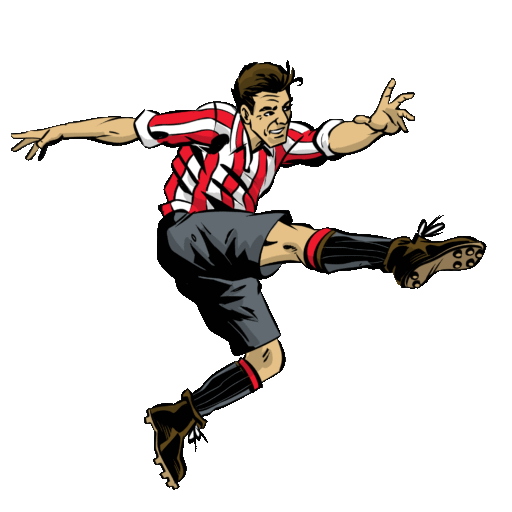
When the final whistles blew on the spring of 1902, Sunderland had once again climbed to the summit of English football. It was their fourth league championship in just over a decade — a staggering record for a club still in its youth. But this title carried a particular resonance. It came at a moment when the balance of power in the First Division was shifting, when new challengers like Newcastle United and Everton were emerging, and when the professional game itself was growing more sophisticated. For Sunderland, victory was both a reminder of past glories and a declaration that they remained a force to be reckoned with.
The Season Dawns
The campaign began at Roker Park on a September afternoon against Sheffield United. Reports tell of a ground transformed over the summer: new turf laid, better drainage installed, even the stands given a fresh coat of white paint. The corporation had improved the surrounding roads too, so that workmen arriving after their tea no longer had to slog through mud to see their team.
On the pitch, the familiar white shirts of Sunderland (the stripes were not always worn at home then) brought early delight. R. Hogg opened the scoring, and in the final minutes, Common struck twice to secure a 3–1 victory. The crowd of more than 14,000 went home convinced their side were ready for another tilt at the crown.
“Cool as ever,” one reporter wrote of Ned Doig after yet another fingertip save.
Victories over Manchester City and, crucially, rivals Newcastle United followed. The win at St. James’ Park was perhaps the first real statement of intent: a scrappy, narrow game decided by Gemmell’s speculative effort, which deceived Kingsley in the Newcastle goal. The roar from the Wearside contingent that day was said to have carried all the way back down the river.
The Heart of the Team
If one man personified Sunderland that season, it was Ned Doig. Already a veteran, the Scottish goalkeeper seemed unflappable. Match reports are filled with descriptions of him plucking shots out of the air, fisting clear under pressure, and marshalling his defence with calm authority.
In front of him stood McCombie and Watson, two defenders of the old school — tough in the tackle, strong in the clearance. Their long punts upfield were often the first spark of a Sunderland attack. Alongside them, Ferguson and McAllister worked tirelessly in the half-back line.
And then there were the forwards. The Hoggs, Billy and Robert, scurried down the wings, sometimes frustrating, often thrilling. Millar and McLatchie offered service and guile, while Gemmell, once inconsistent, grew into a genuine match-winner. His goals, coupled with a willingness to scrap, gave Sunderland an extra edge.
“Gemmell had improved almost beyond recognition,” noted one observer after his decisive strike at Sheffield United.
Storms and Setbacks
It wasn’t all smooth sailing. Sunderland’s first defeat came at Wolverhampton, and it was a humbling one. Wolves played at a furious pace, charging in packs, and Sunderland simply could not cope. They conceded four times before the break, and though they rallied, the match was lost.
Other setbacks followed — a draw at home to Liverpool, despite the visitors being reduced to ten men, was especially galling. Defeats at Stoke and Everton exposed the same weakness: when opponents played direct and physical, Sunderland sometimes wilted.
Anecdote: In the Liverpool game, George Bowen twice left the field injured, leaving his teammates to battle with ten men for most of the match. Sunderland could not take advantage, missing chance after chance. “The ball went everywhere but into the net,” sighed the Echo.
Finding a Way
Yet champions are defined not by the absence of failure, but by how they respond to it. Time and again, Sunderland answered setbacks with grit. At Sheffield United in October, in front of a partisan crowd of 14,000, they were pinned back for long spells. But Doig saved everything thrown his way, and midway through the second half Gemmell lashed home the only goal.
At Roker Park, too, Sunderland showed their steel. Against Aston Villa, one of the giants of the age, they scrapped their way to a 1–0 victory, Robert Hogg’s strike greeted with roars that echoed down the terraces. It wasn’t always pretty, but it was effective.
“Roker had become a fortress,” wrote the Sunderland press, “and no visitor relishes the journey north.”
The Supporters’ Season
What shines through the match reports of 1901/02 is the role of the supporters. Trams and trains ferried thousands into Sunderland every Saturday, with Roker Park often thronged with 15,000 or more. They were quick to groan when Watson sliced a clearance or when Millar missed a sitter, but just as quick to roar their side forward.
Anecdote: For the first time, Sunderland installed a giant telegraph board at the Fulwell End, updating fans on other scores as they arrived. The board was “a trifle small to be seen from the sea end,” one reporter quipped, “so a second will no doubt be required.”
The derby with Newcastle encapsulated the mood. Sunderland’s win at St. James’ Park preserved a peculiar record — neither side had yet beaten the other on home soil since Newcastle joined the league. For Wearside supporters, that away victory was more than points in the table; it was local pride secured.
Champions Once More
By the end of the season, Sunderland’s consistency told. They had built their campaign on solid home form and just enough resilience on their travels. Goals came from different sources, not just Gemmell and the Hoggs but also Millar and others, spreading the burden. At the back, Doig remained almost superhuman, the calmest man in any ground he walked into.
The final table confirmed Sunderland as champions, their fourth league title since joining the Football League in 1890. It was a remarkable return for a club outside the Lancashire–Midlands axis, and proof that the North East was now firmly established as a football stronghold.
Legacy
Looking back, the 1901/02 title feels like both a continuation and a turning point. It confirmed Sunderland as one of the dominant clubs of football’s first two decades, their four championships putting them on a par with Aston Villa at the top of the English game. Yet it also marked the end of an era. Within a few years, other clubs — Newcastle chief among them — would rise to prominence.
Still, the memories of 1901/02 endure. Of Doig, standing tall in goal. Of Gemmell’s goals and the Hoggs’ wing play. Of Roker Park filling with smoke from pipes and cheers from the terraces. It was a season of steel and spirit, of setbacks endured and rivals conquered, and of Sunderland AFC, once again, crowned the best in England.
Note – a book on Sunderland AFC’s 1901/02 campaign is currently being researched and written and will be published at some point during 2026.





